Shares of Apple are currently trading at an all time high, in a bull market rally that recently-elected U.S. President Trump has frequently taken credit for. However, stock market gains— including Apple's— appear to be driven primarily by favorable earnings reports from the December quarter. The economic future of Apple — and the U.S. overall — is less certain, given risks related to infrastructure investment, taxes, currency valuations, immigration restrictions and travel bans under the new administration.
Source: Wall Street Journal
Infrastructure in Apple's backyard
Trump campaigned on the idea of "Making America Great Again," including commitments to rebuild the nation's crumbling transportation infrastructure and return jobs to the manufacturing Rust Belt and coal country.
However, rather than focusing on building Congressional support for a meaningful infrastructure plan, the Trump administration's first significant action on transportation has been to put a hold on funds already approved for the electrification of Caltrain, Silicon Valley's commuter rail link that connects San Francisco to San Jose, providing service to commuters at Google, Facebook and Apple's Cupertino, Sunnyvale and Santa Clara sites. Apple's new Campus 2 project was designed to include transit support for commuters, including busses to nearby Caltrain stations.
Caltrain ridership is at an all time high. Its modernization program includes upgrading trains from diesel to electric service in order to enable cleaner running, faster accelerating trains that can accommodate more riders at lower operating costs. Caltrain parallels the 101 and 280 freeways, providing an alternative to Silicon Valley's crippling rush hour traffic, so it also benefits those who have to drive.
Holding up federal funds has the immediate effect of delaying a project that was set to immediately begin contracting out construction work after many years of planning. Even if the funds are released later, this delay will greatly increase the future cost of the project, while also impacting economic growth and existing traffic in the Bay Area. Caltrain notes that the project involves 9,600 jobs across the U.S.
Earlier this month, Trump "lamented the lack of high-speed rail service" in the U.S. in speaking to airline executives, saying " You go to China, you go to Japan, they have fast trains all over the place... we don't have one fast train."
Plans for California High Speed Rail intend to eventually integrate with Caltrain to support HSR into San Francisco from Los Angeles, but completion of that system remains decades away. Delaying the immediate electrification of Caltrain makes no sense, even to parties opposed to the future HSR project.
In fact, delaying federal funds to improve Caltrain today will have the affect of releasing HSR funds already committed to the project, so those dollars will instead be diverted to build tracks in the middle of California that won't be of service to anyone for many years (if ever).
Rather than accelerating the development of American infrastructure improvements, the Trump administration has bungled this ready-to-go project right out of that gate. That does not create confidence in the president's plans and ability to implement improvements in other areas.
Trump's travel ban did not play well in Silicon Valley
Aside from derailing investment in Caltrain, Trump policies so far have had a limited impact on Apple, apart from an executive order declaring a travel ban that threw the nations' airports and the routine business of international companies into uncertainty and chaos before federal judges struck the order down as unconstitutional.
Immediately after the ban was introduced, Apple's chief executive Tim Cook staunchly opposed the executive order, noting that, "more than any country in the world, this country is strong because of our immigrant background and our capacity and ability as people to welcome people from all kinds of backgrounds. That's what makes us special. We ought to pause and really think deeply through that."
Executives from Facebook, Google, Lyft, Netflix, Uber and Twitter also spoke out against the travel restrictions, which supposedly target countries at risk of terrorism without including Saudi Arabia, the United Arab Emirates and Egypt— the source of the majority of foreign terrorists who have killed Americans in 9/11, but notably also countries that do business with Trump's organization.
Outside of California's Silicon Valley, Amazon, Expedia and Microsoft also backed their Washington state attorney general suing Trump to stop enforcement of the ban. The rush to deploy such a disruptive measure affecting American businesses, and the executive order's poor implementation— which failed to even clearly define who would be affected— raise further doubts about the competence and capability of Trump's administration to change policies without introducing unnecessary chaos, and to achieve clear, successful results.
Other American industries had previously lodged comparable complaints against the Obama administration, notably the coal industry impacted by pollution rules Obama put in place. However, while eastern coal mining was impacted by those rules targeting coal burning power plants, the viability of coal mines were already being buried by the shift to cleaner natural gas unlocked by new fracking techniques. Obama also challenged the unrestricted development of new reserves on public lands and opposed the approval of the Canadian Keystone XL and the Dakota Access pipeline.
Trump has come out against Obama in all respects, calling for a return of coal digging and for the approval of natural gas pipelines. However, cheap oil from Canada isn't going to make coal fired plants economically attractive again. A year ago, depressed oil prices were also blamed for the stock market retreat that affected a variety of industries, notably including Apple. By aggressively seeking to overturn policies put in place by Obama without much consideration of potential side effects, Trump is creating uncertainty in the market that will likely result in serious problems down the line.
Will a foreign tax holiday survive Trump?
The largest positive financial impact that Trump's intended agenda is thought to potentially have on Apple is a plan to enable the repatriation of foreign earnings into the U.S. at a much lower rate. Cook has frequently complained about problems in the U.S. tax code, in particular the country's high tax on foreign earnings, which is not required to be paid if the funds remain invested overseas. That's a strong disincentive for American firms to use their foreign profits to pay for domestic investment. It's simply bad for the U.S.
In a 2015 interview with Charlie Rose, Cook said of Apple's foreign earnings, "It would cost me 40 percent to bring it home, and I don't think that's a reasonable thing to do. This is a tax code, Charlie, that was made for the industrial age, not the digital age. It's backwards. It's awful for America. It should have been fixed many years ago. It's past time to get it done."
Earlier that year, Apple's then-chief financial officer Peter Oppenheimer had expressed the same thing during an earnings call, noting that Apple has "expressed our views to Congress and the White House."
At the time, the Obama Administration pushed back, indicating a clear lack of interest for a tax holiday. However, legislators in Congress (who actually draft and pass tax laws) in both parties have been pushing for years to launch a tax break that would incentivize American companies with overseas holdings to bring their foreign cash into the U.S. A recent effort was launched by Democratic Senator Kay Hagan of North Carolina and Republican Senator John McCain of Arizona. Trump's derailing of infrastructure investment and ill conceived travel ban do not inspire confidence in a smooth implementation of smart tax reform
Last September, Cook expressed confidence that Apple would bring "billions" of its foreign earnings pile back into the U.S. by the end of 2017, at a time when Apple and other Silicon Valley companies were working with Hillary Clinton to draft tech-friendly policy positions in tech to address issues ranging from encryption and privacy to innovation, patents and education.
Clinton herself had earlier advocated "the idea of a 'really low rate' for offshore income" tied to new infrastructure spending in her speeches from 2014, according to a report by Politico.
The presidential candidate most opposed to a repatriation tax holiday was Bernie Sanders (who portrayed it as a tax giveaway to big companies), but he was no longer in the race by the time Cook expressed his confidence that Apple would be open to bringing foreign earnings home this year. Regardless of the results of the election, a tax repatriation holiday had been expected for some time.
At this point, the risk lies with the effectiveness and speed of the Trump administration's implementation, including the possibility of a delay caused by failing to work effectively with Congress. Trump's derailing of infrastructure investment and ill conceived travel ban do not inspire confidence in a smooth implementation of smart tax reform.
Taxes, trade wars and American jobs
So far, Trump hasn't presented much clarity on tax policy goals, focusing instead on signing a series of executive orders that dismantle policies from the Obama administration. While it's easy to oppose the status quo, it's harder to shift from a populist complaint campaign targeting disgruntled, uneducated white voters to the actual delivery of an implementable tax code that Congress will pass. Trump's campaign tax proposals are also at odds with the goals of some Republicans in Congress.
Trump campaigned on a plan to enact a "big border tax," which would punish companies that build or buy products outside the U.S. However, saber rattling with Mexico has already resulted in the biggest importer of U.S. goods threatening to buy its corn and beef from South America instead. A border tax on imports would also impact the entire American middle class, raising the price of much of what they buy, directly or indirectly.
House Republicans tend to favor "border adjusted taxation" instead, which would allow American companies to deduct the cost of exports but not imports. That would adversely hit net importers including Apple, which assembles most of its hardware overseas. Trump actually campaigned on the idea of forcing American companies to build in the U.S., specifically naming Apple, while dramatically calling for a boycott of the company's products, even as he himself continued to use a phone built in South Korea.
However, while Apple assembles most of its products in China, the real value of its iPhones, iPads, Macs, Apple Watch and other devices does not come from assembled hardware but from the software platform and design that Apple creates in the United States. That's apparent in the fact that Android phones now sell at an average selling price under $200, while Apple's iPhone ASP is nearly $700. Both devices are assembled in China. The difference is that Apple's are developed in the U.S. with a focus on security, performance, ease-of-use and attractive design that make them more valuable to affluent buyers with the ability to afford them.
Trump also attacked Apple's focus on security during his campaign, insisting that Apple should implement a back door to facilitate unlocking encrypted devices by the FBI. As an American presidential candidate, Trump's repeated attacks lobbed at Apple may have simply been distracting theater. Once becoming president, Trump dropped his charade and invited Apple and other leading tech firms to discuss their needs. However, it's still unclear what Trump actually believes about Apple, jobs and backdoors to encryption.It's still unclear what Trump actually believes about Apple, jobs and backdoors to encryption
While Trump's campaign repeatedly focused on low wage labor related to hardware assembly, the jobs Apple has already created in America are far more valuable. Apple's 2015 employment numbers include 76,000 well paying jobs in the U.S., and note that its investments in U.S. suppliers directly support another 361,000 jobs. Further, Apple's macOS and iOS platforms have created employment for 2 million people. Those kinds of jobs are far more desirable and rewarding compared to entry level assembly jobs, which are increasingly going away as manufacturing turns toward automation.
Trump's contradictions in dismantling some government regulation (allowing, for example, coal mines to dump waste in rivers) while ostensibly seeking to force Apple to destroy the security of its products, or dictate where it sources its lowest value assembly jobs, makes no sense. Seeing value in basic manufacturing jobs while being blind to much more valuable design, development and engineering positions also indicates a poorly thought out, old fashioned strategy for jobs in general.
Another economic issue Trump has to think about is the relative value of the dollar. If it continues to strengthen, exporters like Apple will continue to struggle with higher prices in other countries, an issue AppleInsider drew attention to two years ago. Conversely, Apple's strong cash position enumerated in U.S. Dollars also means the company can buy up foreign assets at a discount in the U.K., Europe, China and elsewhere.
Trump reportedly wasn't sure whether a stronger currency was "good or bad," but rather than turning to an economist he asked his now-fired National Security Advisor Michael Flynn, who also didn't know.
Government by the president, for the president
Implementing taxes and trade policy that ultimately hurts U.S. exports, raises the price of imports, and punishes the most successful American companies are bad for everyone in the country. It would be great if Trump surrounded himself with smart people with proven successes in governing and crafting policy that works. However, it currently looks like White House policy is being driven by a reflexive revulsion of Obama's policies rather than having a clear sense of positive direction.
Rather than focusing on how to govern with workable policies, Trump seems more concerned with protecting his own image and attacking the media for being questioning and critical. Trump's entanglements with global business dealings— most of which concern the licensing of his name by property holders rather than value creation, manufacturing or the development of intellectual property— suggest a lack of interest or familiarity in the kinds of enterprise that are actually driving the American economy.
If Trump policies continue to focus on making it harder to educate a domestic workforce, create chaos in global travel, punitively tax the biggest contributions of American value, and sideline critical infrastructure improvements, recent stock market gains could evaporate and the economy could be thrown into reverse. The true effects of misguided policies might not be felt immediately, if a tax holiday results in a massive influx of foreign cash.
After the seed corn is eaten and the lifeboats are burned for firewood, however, things could get really ugly.
Editor's Note: Due to its political nature, comments for this article have been closed. Feel free to visit our Political Outsider forum to discuss this and other political topics.
 Daniel Eran Dilger
Daniel Eran Dilger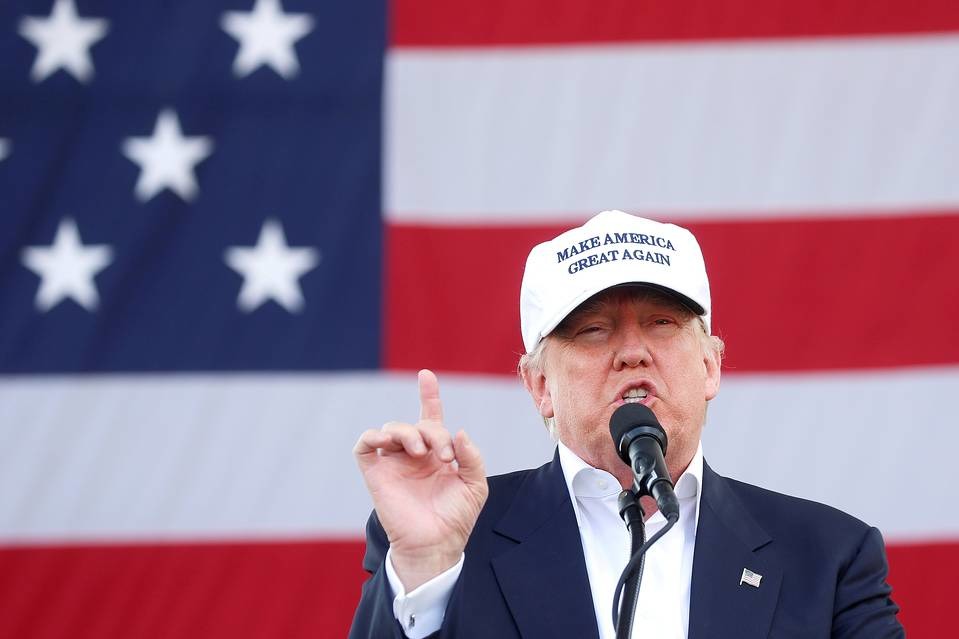
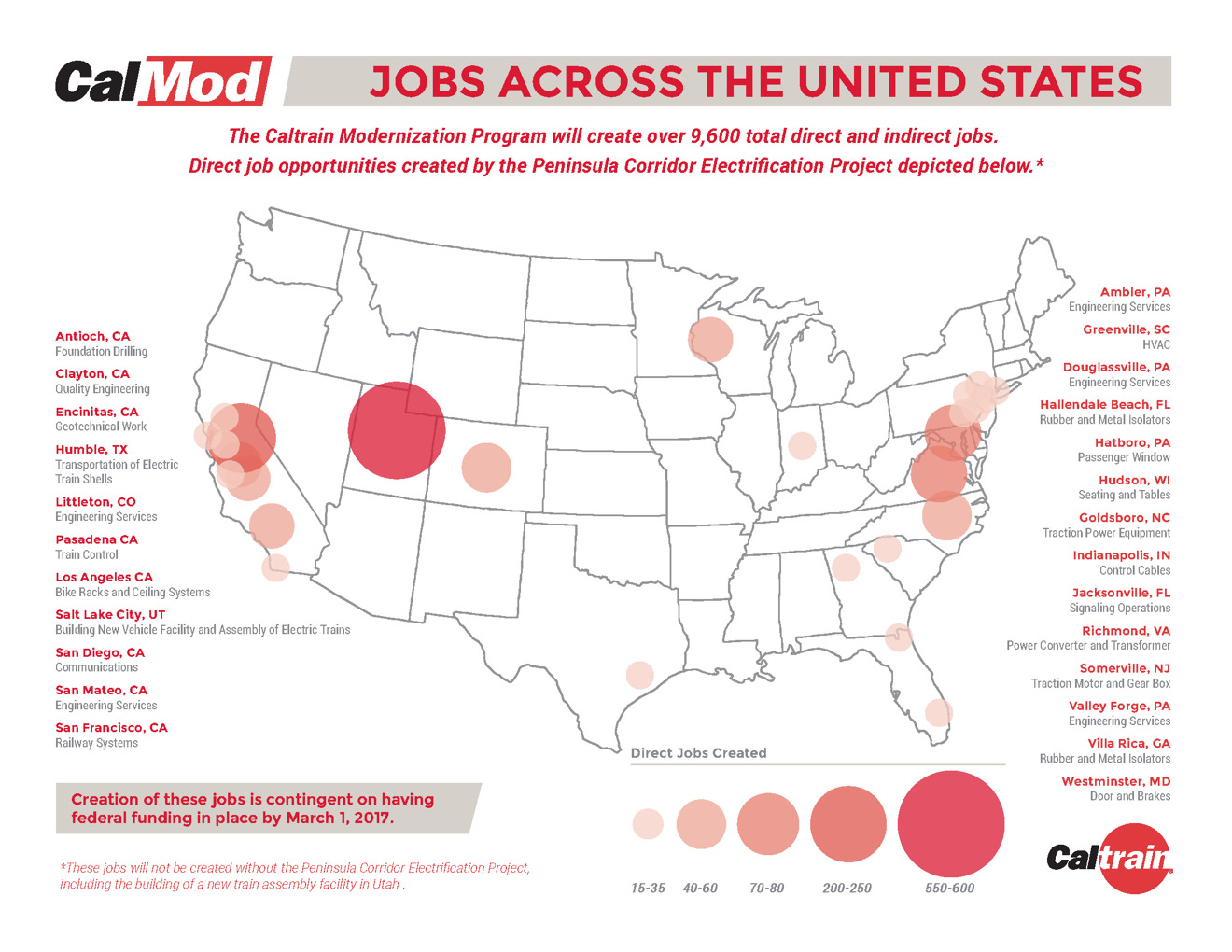
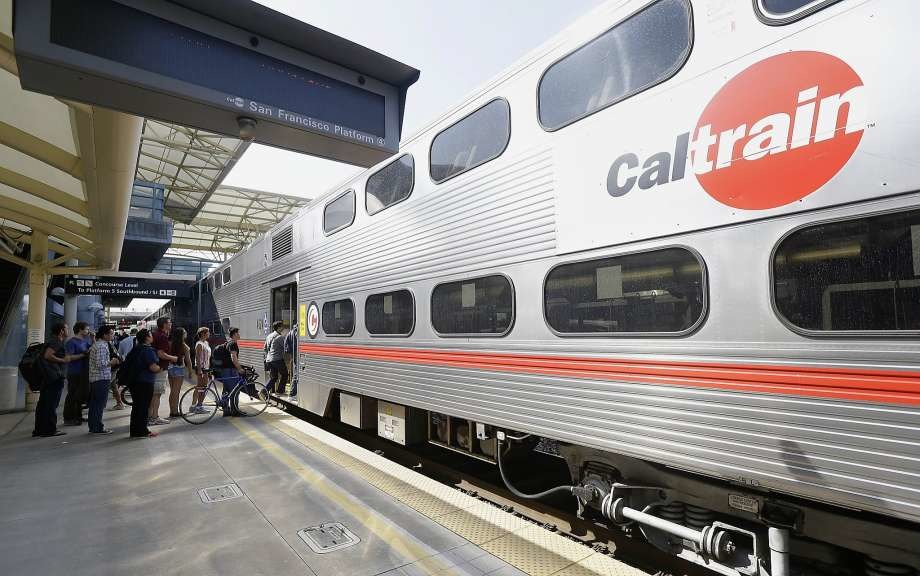
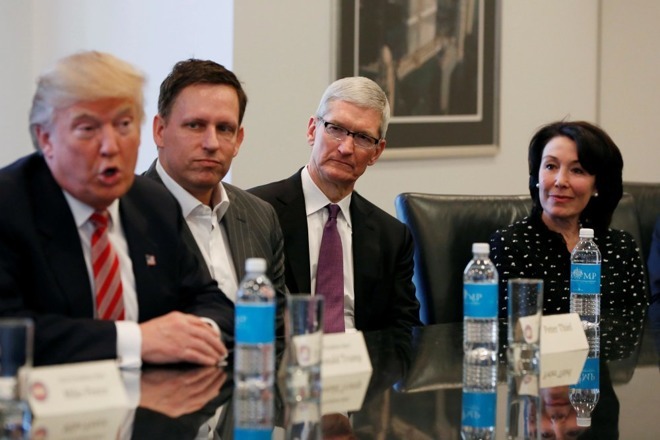




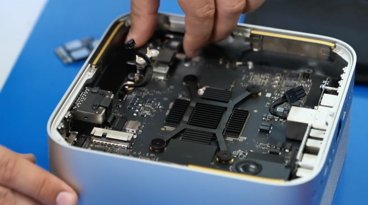



 Charles Martin
Charles Martin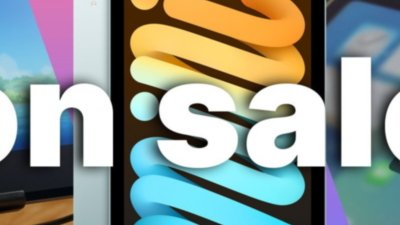
 Christine McKee
Christine McKee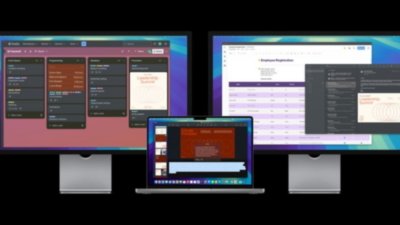
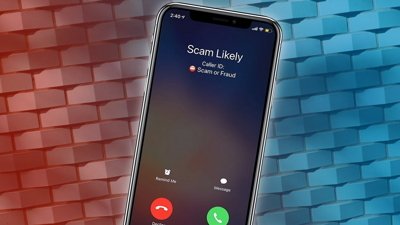

 Oliver Haslam
Oliver Haslam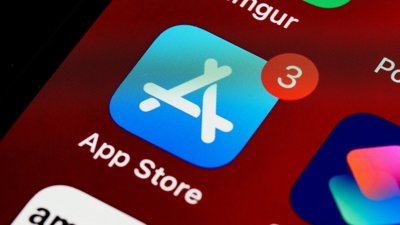
 William Gallagher
William Gallagher

 Sponsored Content
Sponsored Content








There are no Comments Here, Yet
Be "First!" to Reply on Our Forums ->